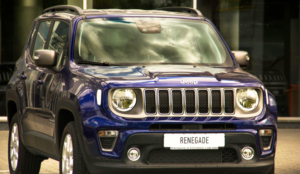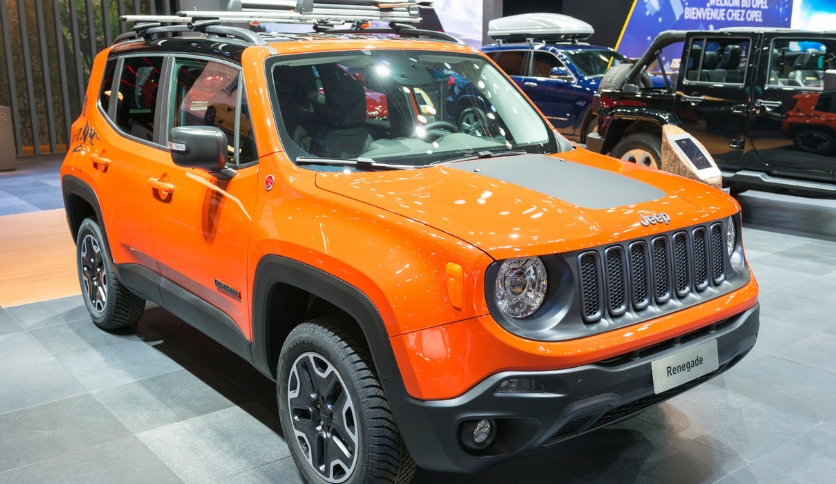Regarding the Jeep Liberty, a popular SUV known for its off-road prowess and robust design, not all model years are created equal. Some years are plagued with more problems, making them less desirable for potential buyers. This article aims to provide a comprehensive guide on which Jeep Liberty years to avoid and which ones are worth considering. It’s all about helping you make an informed decision about purchasing this iconic vehicle.
What Makes Certain Jeep Liberty Years Less Desirable?
Specific Jeep Liberty years are less desirable due to a higher incidence of mechanical issues, safety concerns, and recalls.
While celebrated for its ruggedness, the Jeep Liberty has had its share of issues over the years. Some model years have been more problematic due to recurring mechanical problems, such as transmission failures, engine issues, and electrical problems. These issues not only compromise the vehicle’s performance but also affect its safety and reliability.
Jeep Liberty Recalls and Reliability Concerns Over the Years

Some Jeep Libertys years have faced notable recalls and reliability issues, affecting how owners enjoy and trust their vehicles.
When it comes to owning a vehicle, knowing its history of recalls and reliability can be a game-changer. This is especially true for the Jeep Liberty, a vehicle that has seen its fair share of ups and downs. Certain models of the Jeep Liberty have been called back by the manufacturer due to various issues, ranging from small concerns to major, safety-compromising defects.
A recall is essentially when the manufacturer realizes that there’s something wrong with the vehicle – it could be a part that’s not working right, a safety feature that’s not doing its job, or something else that’s not up to standard. When this happens, they call back the vehicles to fix these issues at no cost to the owner.
For the Jeep Liberty, the 2002 and 2003 models, for example, had significant issues with their braking systems. Imagine you’re driving, and you need to stop quickly, but your brakes are not as responsive as they should be. It’s not only scary but also extremely dangerous. This kind of problem is exactly why these models were recalled – to ensure that every Jeep Liberty on the road was safe to drive.
Then there’s the 2006 model, which had a different issue – engine stalling. This means the engine would unexpectedly stop running, even while the vehicle was being driven. This could happen anywhere, at any time, making it an unpredictable and hazardous issue. Not only is this stressful for the driver, but it also puts everyone on the road at risk.
Knowing about these recalls is crucial if you buy a used Jeep Liberty. It’s not just about the inconvenience of having to take your car in for a fix. It’s about your safety and the safety of others on the road. When a model year has a history of significant problems, it’s often best to steer clear and look for a different year that’s known for its reliability and safety.
Why Avoiding Certain Jeep Liberty Models is Crucial for Buyers
Choosing to steer clear of certain Jeep Liberty models is a wise decision because you could spend a lot on fixing them, and there’s a chance they might not be safe.
Let’s face it – nobody likes unexpected expenses, especially regarding our cars. Some Jeep Liberty models, unfortunately, are known to have issues that can really hit your wallet hard. Imagine this: you buy a Jeep Liberty, and then, out of nowhere, you’re faced with a hefty repair bill because something major went wrong – maybe the engine starts acting up, or there’s a problem with the transmission. These aren’t just small fixes; they can cost a pretty penny.
But it’s not just about the money. Your safety, and the safety of everyone who rides with you, is priceless. Some Jeep Liberty models have a history of safety problems. This could be anything from brakes not working properly to electrical issues that could lead to bigger problems. Driving a car with these kinds of issues is like taking a risk every time you get behind the wheel. And let’s be honest, no one wants to feel unsafe in their own car.
When you’re thinking about getting a Jeep Liberty, it’s really important to look into these things. Which models have had a lot of problems? What kind of problems were they? Were they serious? Knowing this can save you not just a lot of money in the long run, but it can also give you peace of mind knowing that you’re driving a car that’s reliable and safe. Remember, it’s not just about getting from A to B; it’s about getting there without any nasty surprises along the way.
How to Identify Problematic Jeep Liberty Years Before Purchase
To spot the years of Jeep Liberty that might give you trouble, focus on doing your homework. This includes digging into the car’s past, reading up on what other drivers have said, and getting a mechanic to give it a once-over.
Picking the right used Jeep Liberty involves more than just loving its looks or how it feels on a test drive. You need to play detective a bit to make sure you’re not picking a year model that’s known for problems. Here’s how you can do it:
Start with Some Online Sleuthing
Your first step is to hit the internet. Look for forums and websites where Jeep Liberty owners hang out. People often share their experiences there – the good, the bad, and the ugly. Pay special attention to any recurring complaints about certain model years. Are a lot of people talking about transmission issues in the 2003 model? Are there frequent mentions of electrical problems in the 2006 version? These are red flags you should note.
Read Through Owner Reviews
Websites like Consumer Reports or Edmunds are gold mines for this. Owners give their honest opinions about their cars. This real-world feedback is invaluable. If you see that a particular year model has a lot of negative reviews, or the same issues keep popping up, it’s a sign to maybe steer clear of that year.
Dive into the Recall History
Every car has its hiccups, and recalls are part of this. But if you notice that a specific year of Jeep Liberty has had more than its fair share of recalls, especially for serious issues like engine or brake problems, that’s a major caution flag. Government websites and car safety forums can provide detailed info on past recalls.
Get a Vehicle History Report
This is like getting a biography of the car. A history report will tell you if the car has been in any major accidents, had multiple owners, or if it’s been regularly serviced. Services like Carfax or AutoCheck can provide these reports for a fee. They can reveal a lot about the car’s past that might not be visible to the naked eye.
Have a Professional Inspection
This is the final and perhaps most crucial step. Take the Jeep Liberty to a trusted mechanic for a pre-purchase inspection. They can spot problems you might miss, like issues under the hood, problems with the suspension, or signs of wear and tear that are more than just regular aging. Sometimes, they can also give you a heads up if the model you’re considering is known for certain issues.
The Best Jeep Liberty Years: Making an Informed Choice
When it comes to reliability and fewer problems, certain Jeep Liberty years stand out as better options for buyers.
If you’re in the market for a Jeep Liberty, it’s not all doom and gloom. Sure, some years have their fair share of problems, but there are also those golden years where the Liberty really shines. These are the years when Jeep got it right, offering a balance of durability, reliability, and enjoyment.
The 2004 and 2007 Jeep Liberty models are often highlighted as the stars of the lineup. Why, you ask? Well, for starters, these models benefitted from improvements made after Jeep had a few years to iron out the kinks from earlier models. They represent a sweet spot in the Liberty’s history, where the design and engineering teams really hit their stride.
The 2004 model, in particular, is a gem. It came after Jeep had a few years to refine the Liberty, and it shows. Owners of this year often report fewer mechanical problems. This isn’t just hearsay; various consumer reports and reliability ratings back this up. From the engine to the transmission, everything just seems to work better and last longer.
Then comes the 2007 model. This year is often praised not just for its reliability, but also for its sturdier build. Jeep made some tweaks to the design and mechanics, resulting in a vehicle that feels solid and dependable. Whether you’re cruising on the highway or tackling rough terrain, the 2007 Liberty is up to the task. And let’s not forget, fewer trips to the mechanic means more money in your pocket in the long run.
So, what makes these years stand out? It’s a combination of things. First, there’s the build quality. These Liberties were put together with care and attention to detail. Then there’s the reliability factor. They tend to have fewer issues with major components like the engine and transmission. This means you’re less likely to face costly repairs.
What Distinguishes the Best Jeep Liberty Models from the Rest

The best Jeep Liberty models are characterized by fewer recalls, improved design, and better overall reliability.
The more desirable Jeep Liberty models benefitted from improvements in design and manufacturing. These changes led to fewer common mechanical problems and recalls. Owners of these models often report better overall satisfaction, citing fewer repairs and a more enjoyable driving experience.
How to Maintain Your Jeep Liberty for Long-Term Reliability
Regular maintenance and addressing small issues promptly can greatly prolong the life of your Jeep Liberty.
Detail: To ensure your Jeep Liberty remains reliable, stick to a regular maintenance schedule. This includes regular oil changes, tire rotations, and checking fluid levels. Additionally, addressing small issues as soon as they arise can prevent them from turning into major problems down the line.
Essential Jeep Liberty Maintenance Tips for Prolonging Vehicle Life
Proper maintenance involves regular check-ups of critical components like the engine, transmission, and brakes.
Keeping your Jeep Liberty in top condition requires attention to its critical components. Ensure the engine runs smoothly, the transmission fluid is clean and at the right level, and the brakes are in good condition. Regularly checking and maintaining these parts can save you from costly repairs and extend the life of your vehicle.
FAQ about Jeep Liberty Years to Avoid
What are the most common problems with Jeep Liberty SUVs?
Common issues include transmission problems, engine stalling, and electrical issues.
Is the Jeep Liberty a reliable car for long-term use?
This depends on the model year; some years are known for their reliability, while others have significant issues.
What should I look for when buying a used Jeep Liberty?
Look for a well-maintained model with a clean history, and consider having it inspected by a professional.
How does the Jeep Liberty compare to other SUVs in its class?
The Jeep Liberty offers unique off-road capabilities but may lag in reliability compared to some competitors.
Are there any model years of Jeep Liberty that are considered the best?
The 2004 and 2007 models are often cited as being more reliable and having fewer issues.
Conclusion
When choosing a Jeep Liberty, knowing which years to steer clear of can save you a lot of headaches down the road. While the Liberty is a great SUV with a solid following, it’s important to remember that not every model year is a winner. Some years are notorious for problems, and these are the ones you’ll want to avoid.
The key takeaway here is to do your homework. Research is your best friend when finding a good, reliable Jeep Liberty. Look up the model years, read reviews, and check out what other owners have to say. This will give you a clearer picture of which years have persistent issues and which ones will likely offer a smoother, more reliable ride.

Hello there, this is Thomas Byrd. I am a professional car mechanic who leads a team of junior mechanics in a repair and restoration shop. In the beginning, I used to work for a jeep service center as a basic worker. From there I keep learning, changed my job 2 times and now I am a professional who leads a group of mechanics. Though a have expertise in the jeep, I know very well about all types of cars. To share my knowledge and skills with others I have created this blog website. Whenever I get free time from work I give my time to my blog.

